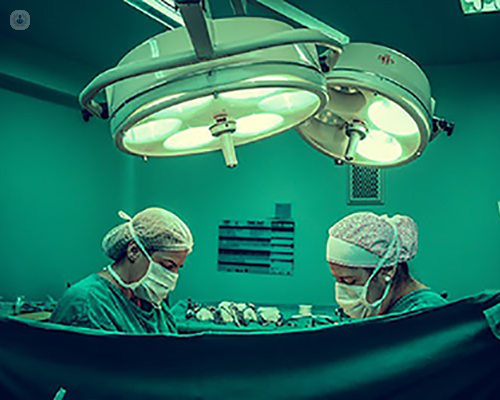Revolutionising gallbladder surgery: a journey through modern techniques
Written in association with:In his recent online article Mr Ricky Bhogal gives us his insights into gallbladder surgery. Gallbladder surgery, or cholecystectomy, has seen remarkable changes in recent years. This article explores the newer methods that have improved the surgery, making it less invasive and easier to recover from.

Open cholecystectomy
In the past, gallbladder surgery was done through a large cut in the abdomen. Although effective, this method led to longer recovery times, more pain, and a higher risk of problems. Patients needed to stay in the hospital for several days before getting back to their regular activities.
Laparoscopic cholecystectomy
Laparoscopic surgery changed the game for gallbladder surgery. This procedure involves making a few small cuts instead of one big one. A tiny camera and special tools are inserted through these small cuts to see and remove the gallbladder. The perks of laparoscopic surgery are plenty. Smaller cuts mean less pain after surgery, shorter hospital stays, quicker recovery, and smaller scars. Patients can often go back to work and their daily routines in just a few days.
Single-incision laparoscopic surgery
Building on laparoscopic surgery, single-incision laparoscopic surgery (SILS) takes things even further. In SILS, all tools go through one small cut, usually in the belly button. This approach is super minimally invasive, resulting in scars that are barely noticeable and an even speedier recovery. SILS needs surgeons to be extra precise due to the limited number of cuts, but the outcomes are usually just as good as traditional laparoscopic surgery. Patients like it because of how good the incision looks – it's tucked away in the belly button, making it almost invisible.
Robotic-assisted cholecystectomy
The newest option for gallbladder surgery is robotic-assisted surgery. In this method, a surgeon controls robotic arms with small tools from a console. These tools go through small cuts, allowing for very careful and exact movements. Robotic surgery gives surgeons a 3D, high-definition view of the surgery site, helping them work with great precision. It also prevents hand shaking, making sure the surgery goes smoothly. Patients get smaller cuts, less pain, smaller scars, and faster recovery.
Gallbladder surgery has really evolved from the old ways. Innovations like laparoscopic surgery, single-incision surgery, and robotic-assisted surgery have made the process better for patients. As technology gets better, gallbladder surgery will likely keep improving, making it even easier for patients to get back on their feet after the surgery.
Mr Ricky Bhogal is a highly regarded consultant hepatobiliary surgeon with over 20 years of experience. You can schedule an appointment with Mr Bhogal on his Top Doctors profile.


